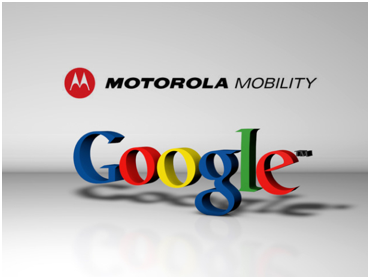European Commission clears Google, Motorola merger

Google is one step closer to acquiring Motorola Mobility, the smartphone maker, after it cleared the hurdle of the European Commission this afternoon. It is also expected that U.S. antitrust regulators will approve the deal, following the lead from European authorities.

The Commission said: "it would not significantly modify the market situation in respect of operating systems and patents for these devices."
It also acknowledged that Google would be unlikely to "restrict the use of Android solely to Android", which is a "minority player" in Europe.
"The Commission therefore concluded that the transaction would not significantly impede effective competition in the EEA or any substantial part of it".
Google said today that the decision was an "important milestone", but acknowledged it has further hoops to jump through. "We are now just waiting for decisions from a few other jurisdictions before we can close this transaction."
Google, the search giant and maker of the Android mobile operating system, set out its proposals to acquire Motorola Mobility last year for $12.5 billion.
Not only does it create a stable ecosystem for Android devices, Google is set to receive over 17,000 patents which would bolster its portfolio, and help protect itself from patent disputes.
The Commission has not asked for any further details from the two companies, nor has it decided to open up an antitrust investigation, two decisions that could have been widely damaging to the two companies.
Earlier this week, Google pledged to license Motorola patents on 'fair, reasonable and non-discriminatory' (FRAND) terms to other mobile manufacturers, even competitors, should the deal succeed.
"The Commission's guidelines on horizontal cooperation agreements adopted last year make clear that commitments to license on FRAND terms are crucial to ensure access to standardised technology for all interested parties," a statement from the Commission said.
However, European Competition Commissioner Joaquin Almunia said that it would "continue to keep a close eye on the behaviour of all market players in the sector, particularly the increasingly strategic use of patents".
Often in cases such as this, high cost mergers or acquisitions, the U.S. antitrust authorities --- as the home turf of many of these companies --- work closely with its European counterparts to secure a similar or identical resolution. A European decision was necessary due to Google and Motorola both having a presence in the region, and having European customers.
But regulators in Israel and Taiwan have not yet ruled on the decision. While it would not be impossible to go ahead with the deal --- with Europe as the second greatest hurdle after U.S. authorities, which are expected to rule this week --- it would be a complication that the three parties would have to reach an agreement on.
Chinese authorities must also clear the deal. Google does not have a permanent base in the country since it pulled out of the region over claims the Chinese government hacked into its networks. But Motorola has an invested future in the region, with much of its supply chain coming from China.
There is little speculation on what the Chinese could do in such a situation. They may veto the deal, which would cause logistical nightmares for Motorola particularly, but Google alike, and may force the two companies to postpone the merger altogether.
ZDNet's Hana Stewart-Smith, based in Tokyo, reports that China has flaunted its power over Western brands within their territory before. As we've seen with the ongoing Apple 'iPad' trademark dispute, even the largest Western companies are making considerable concessions to get to the coveted Chinese market.
As for Google's relationship with China, they have recently expressed an interest in pushing back into the country. Despite its withdrawal, Google is still popular with the Chinese, and Motorola is one of their biggest mobile sellers.
Stewart-Smith understands the Chinese authorities would not go so far as to actually veto the deal, but nevertheless does not think they will make it easy either. "I wouldn't be surprised if they hold back the merger and delay a decision to keep Google and Motorola guessing," she said.
Related:
- Google-Motorola deal moves forward, Justice Dept. could still block merger
- Europe to decide Google, Motorola fate by February 13
- Motorola Mobility’s shareholders approve Google merger
- Google’s Motorola acquisition: Nail in the Android patent coffin?
- Judge denies Google’s witness complaint in Microsoft-Motorola dispute
- Between the Lines: Motorola might only be worthy to Google for 18 patents
- How Google-Motorola will change tech: Four ways
Around the network:
- CNET: Justice Department set to OK Google-Motorola deal, WSJ says
- Google: Motorola buy won't put us into hardware business
- Google to promise fair licensing for Motorola patents
- CBS News: What a Google-Motorola marriage means for you
- Why Its Motorola Purchase Really Shows Google's Market Weakness
- Motorola suffers 4Q loss as Google sale looms
- Blockbuster: Google buying Motorola Mobility for $12.5B